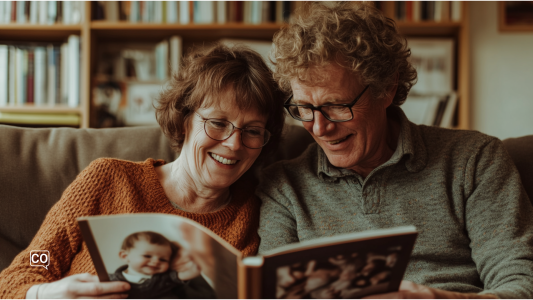Spanish A2.28.1 Childhood memories Share Copied!
Pedro and Ana remember their childhood and the toys of their youth. They talk about nostalgia, the fun of being children, and how they have changed over time.
Diálogo: Recuerdos de la infancia
Pedro y Ana recuerdan su infancia y los juguetes de su niñez. Hablan de la nostalgia, la diversión de ser niños, y cómo han cambiado con el tiempo.

A2 Spanish
Level: A2
Module 4: El buen pasado (The good old past)
Lesson 28: Infancia y recuerdos (Childhood and memories)
Teaching guidelines +/- 15 minutes
Audio and video
Conversation
| 1. | Pedro: | ¿Recuerdas nuestra infancia? | (Do you remember our childhood?) |
| 2. | Ana: | ¡Sí, claro! Cuando éramos niños todo era muy divertido. | (Yes, of course! When we were children, everything was very fun.) |
| 3. | Pedro: | Yo echo de menos esos días. Siempre salíamos a jugar. | (I miss those days. We always used to go out to play.) |
| 4. | Ana: | ¡Yo también! Siempre llevaba conmigo mi juguete favorito. | (Me too! I always carried my toy with me.) |
| 5. | Pedro: | De niño soñaba con ser bombero. | (As a child, I dreamed of being a firefighter.) |
| 6. | Ana: | Yo quería ser cocinera. ¡Qué tiempos más bonitos! | (I wanted to be a cook. What lovely times!) |
| 7. | Pedro: | Ahora somos adultos pero los recuerdos no mueren. | (Now we are adults but the memories do not die.) |
| 8. | Ana: | ¡Así es! La nostalgia nos hace volver a esos momentos. | (That's right! Nostalgia takes us back to those moments.) |
| 9. | Pedro: | A veces quiero volver a ser un adolescente y no preocuparme por nada. | (Sometimes I want to be a teenager again and not worry about anything.) |
| 10. | Ana: | Sí, la vida era más simple antes de ser un adulto. | (Yes, life was simpler before becoming an adult.) |
